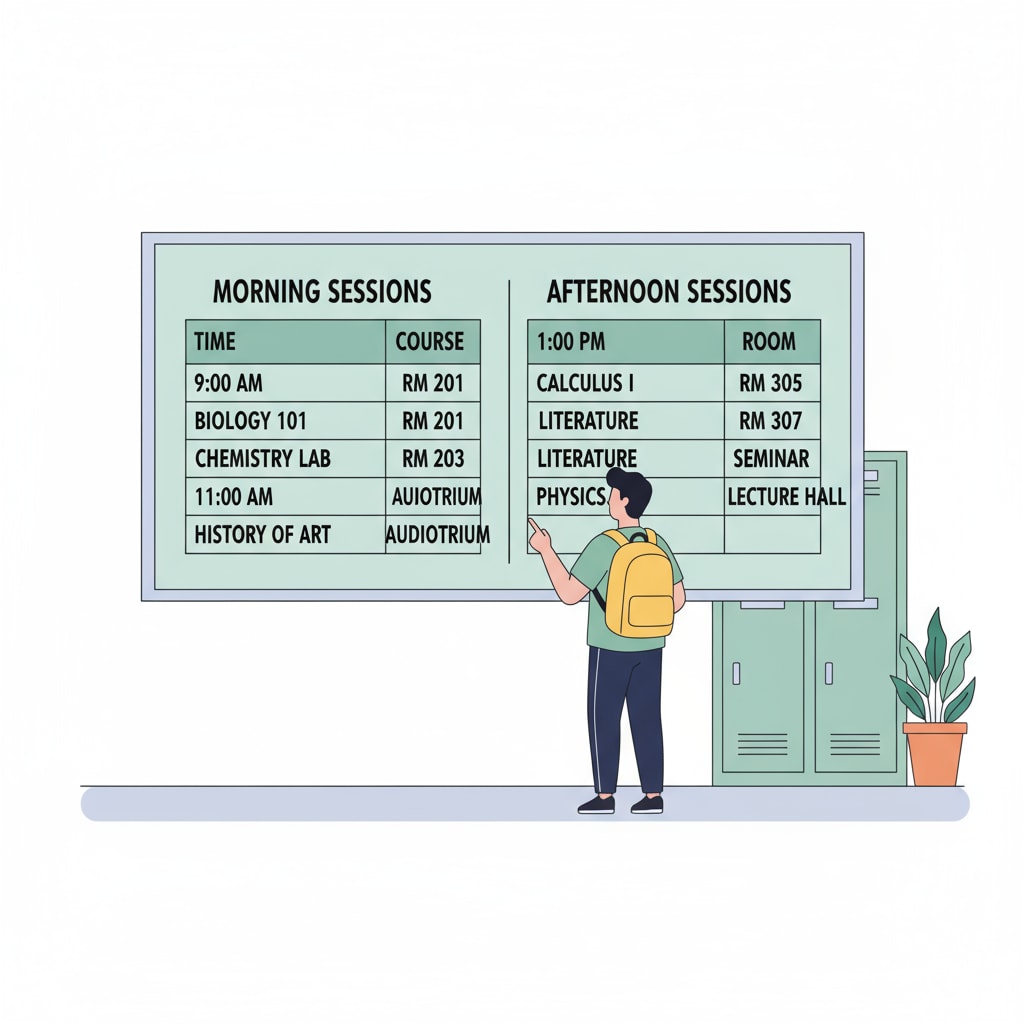In the dynamic world of university life, the decisions we make regarding university schedules, class timings, and rest choices can significantly shape our academic journey and overall well – being. Among the most crucial decisions is choosing between morning classes (9:00 – 12:00) and afternoon classes (16:00 – 19:00). This choice is not merely about filling up a schedule; it involves a careful consideration of various factors that can impact our learning efficiency and daily routines.

The Appeal of Morning Classes
Morning classes come with several advantages. Firstly, for students who are early risers and function best in the morning, these classes can be a great fit. The mind is often fresh after a night’s rest, making it easier to absorb new information. According to Psychology Today’s insights on circadian rhythms, our cognitive abilities are at a peak during certain parts of the day, and for many, the morning hours are prime time for learning. In addition, having morning classes allows students to have the rest of the day free for other activities such as studying in the library, participating in extracurricular clubs, or engaging in part – time jobs. This provides a clear structure to the day, with the academic part completed early.

The Allure of Afternoon Classes
On the other hand, afternoon classes offer their own set of benefits. For those who are not morning people, the extra time in the morning can be used to wake up properly, have a relaxed breakfast, and prepare mentally for the day ahead. Afternoon classes also provide an opportunity to take advantage of the body’s natural energy boost in the later part of the day. Some students find that they are more focused and creative in the afternoon. Moreover, if a student has had a busy morning with personal errands or needed some extra sleep, afternoon classes can be a more manageable option. As per Scientific American’s research on body clocks, different people have different optimal times for cognitive tasks, and for some, the afternoon is when they shine.
When making this decision, it’s also important to consider long – term goals. For students aiming to pursue internships or jobs in the future, the ability to manage their time effectively during university is crucial. If an internship requires early morning commitments, choosing afternoon classes during university might be a better option to ensure a smooth transition. Similarly, for those planning to study abroad or participate in exchange programs, understanding the typical class timings in different countries can influence the choice of morning or afternoon classes at home.
Readability guidance: As we’ve seen, both morning and afternoon classes have their merits. By carefully considering your personal circadian rhythm, study habits, and long – term plans, you can make an informed decision regarding your university class timings. This choice will not only affect your academic performance but also your overall university experience. So, take your time, weigh the pros and cons, and make the best decision for yourself.


